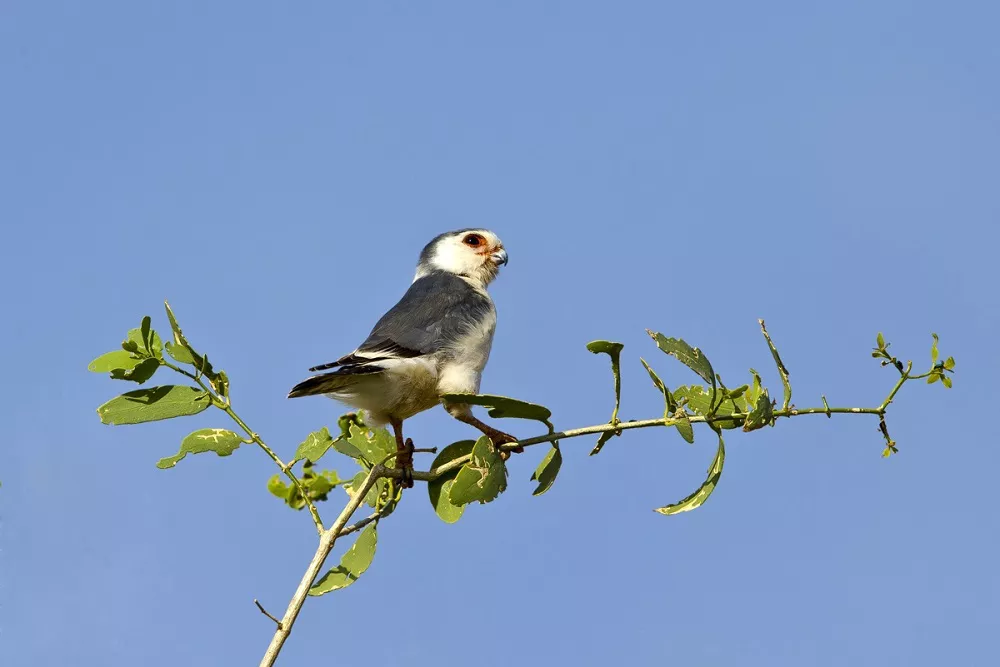The African pygmy falcon, also known as the Polihierax semitorquatus, is one of the smallest raptors in the world. Despite its small size, this falcon has a unique and powerful beak that plays a critical role in its hunting and feeding behaviors.
The African pygmy falcon’s beak is short and hooked, similar in shape to that of other falcons. The beak is slightly curved downwards, which allows it to rip apart the flesh of its prey. The beak is also sharp and strong, making it an effective tool for killing and eating small rodents, insects, and lizards.
The size and shape of the beak of the African pygmy falcon is specifically adapted to its hunting style. Unlike other raptors, the African pygmy falcon doesn’t rely on its speed to catch prey. Instead, it uses a unique hunting technique that involves following herds of mammals and using their movements to flush out insects and other small animals. Once it spots prey, the falcon swoops down and uses its powerful beak to quickly kill and eat the prey.
The beak of the African pygmy falcon is also specially adapted to its diet. This falcon primarily feeds on insects and small mammals, and its beak is perfect for tearing apart the tough exoskeletons of insects and crushing the bones of small rodents. The sharp, pointed tip of the beak allows the falcon to quickly kill its prey, while the strong, hooked shape of the beak allows it to tear apart flesh and break open tough exoskeletons.
Overall, the African pygmy falcon has a unique and powerful beak that plays a critical role in its hunting and feeding behaviors. The short, hooked shape of the beak is specifically adapted to its hunting style and diet, allowing it to quickly and effectively kill and eat small rodents, insects, and lizards. Despite its small size, this falcon is a fierce and efficient predator, thanks in large part to its powerful beak.


 Facebook
Facebook  Instagram
Instagram  Youtube
Youtube 